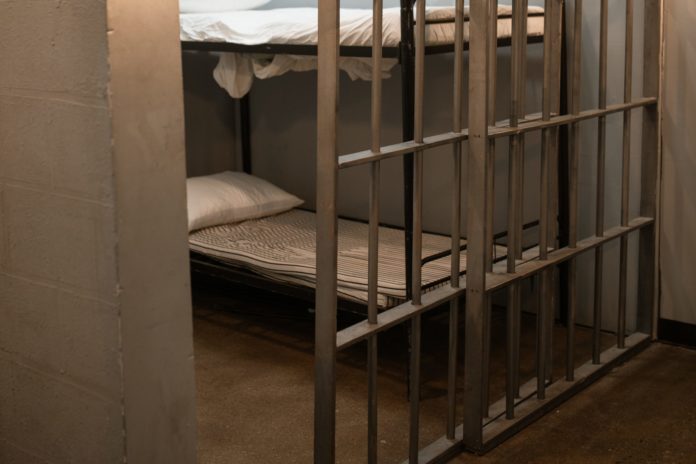
Arrests, immigration-related offenses and the number of federal prisoners declined in fiscal year 2021, according to a new report released Dec. 29 by the Bureau of Justice Statistics. While there were decreases in general federal arrests, the number of people charged with violent offenses increased by 18% and so did people charged with public order offenses at an increase of 13%.
The report notes that of people released from federal prisons in fiscal 2021, “Black persons exiting federal prison in FY 2021 had served more time (a median of 51 months) for their commitment offense than persons of any other racial or ethnic group (a median of 28 to 43 months).”
Of the more than 63,000 defendants adjudicated in federal district courts, 90% were convicted, according to the report. Roughly 74% of convicts were sentenced to prison with a median sentence of 37 months. Black and white defendants sentenced to prison had the same median sentence of 60 months, the report notes. But a larger percentage of Black (85%), American Indian or Alaska Native defendants (82%) who were convicted were sentenced compared to white (77%), Hispanic (71%) or Asian and Native Hawaiian defendants (69%).
Convicted men (77%) were sentenced to prison more often than convicted women (59%). More than 21% of the people in federal prisons were committed from five judicial districts located in Texas and Florida. Texas, California and Florida courts committed 30% of all federal prisoners in fiscal 2021.
Of the U.S. district court cases, violent offenses increased by 18% while the number of people charged with immigration-related offenses decreased by 18%. In general, arrests for immigration-related offenses saw the largest percentage decrease in fiscal 2021 over fiscal 2020 at a 72% reduction, according to the report. Arrests by federal law enforcement agencies also saw a significant decline of 35%, the lowest level in the past two decades, the report notes.
As courts struggle with a backlog of cases, the report shows median days from case filing to case termination in U.S. district courts was 300 days in fiscal 2021, an 88-day increase over fiscal 2020. According to the report, the median time from the receipt of an investigation to the decision from a U.S. attorney to prosecute or decline a matter was up to 70 days in fiscal 2021 which is 43 days more than fiscal 2020.
Compared to fiscal 2020, drug, weapons, material witness and supervision violation arrests also saw declines. Property arrests increased by roughly 11% with fraud-related arrests increasing at just over 10%. Arrests in federal judicial districts like Arizona and New Mexico declined significantly, according to the report, with the largest difference being 66% and the smallest at 44%.
The report notes the pandemic had significant impacts on the federal criminal justice system, showing a sustained decline in investigations and arrests from April 2020 to August 2021. Convictions, charges and sentencing also plummeted in April 2020 as many courts closed to the public and suspended trials and other activity.
Drug Enforcement Administration arrests increased by 6% in fiscal 2021. Over the past decade, DEA arrests related to marijuana and cocaine have decreased while opioids and methamphetamine have increased significantly in recent years. The report also noted for the first time in 2021, the number of DEA arrests for fentanyl exceeded those for heroin.
In fiscal 2021, 93 U.S. attorneys served as the chief federal prosecutor within their judicial district. According to the report, the largest number of referrals to U.S. attorneys came from federal law enforcement agencies. U.S. attorneys declined to prosecute 22% of matters, mostly declining cases related to property fraud and regulatory public order offenses.

